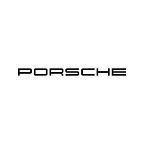Environmental Sensors and Analysis Software for Better Air Quality in Cities
It’s a wrap: The finals of the Porsche ideas competition “Mobility for a Better World” are in the books. Targeting start-ups, engineers and students, our competition sought innovative concepts and technologies to improve sustainable mobility. The competition at the interface of technology, mobility and sustainability produced more than 150 submissions from all around the world. The final live pitch event was held last week at the APX office in Berlin, with four winners selected for their outstanding ideas.
In this post, the first in a four-part series, we’ll take a closer look at the winning ideas and the teams behind them. Let’s start with Breeze Technologies and their idea for cleaner and more breathable cities.
The problem: air pollution
Air pollution is one of the biggest environmental health risks of our time, killing an estimated seven million people worldwide every year, according to a WHO report that says that 9 out of 10 people breathe air containing high levels of pollutants. Moreover, in addition to driving global warming, air pollution costs the global economy an estimated $5 trillion per year. The need to achieve better air quality is most pressing in urban areas where the impact of air pollution on human health and the environment is most severely felt. As cities are growing rapidly in size and population, it becomes increasingly important to develop and implement more effective air pollution reduction schemes.
Clean air is vital to our health and our well-being, and to our cities as a whole. While air monitoring networks have been set up in many cities around the world, managing air quality is still a common challenge. Conventional air monitoring systems sit in one place and can thus detect only nearby pollutants. They are also very expensive, costing up to $1 million per year in maintenance. It is no wonder, then, that many cities lack the information and resources they need to effectively address air pollution. Breeze Technologies is aiming to tackle that problem head-on and provides a more mobile and less expensive air sensing technology.
The solution: improving air quality with small-scale sensors and AI
The Hamburg-based social business start-up helps municipalities, communities, citizens and businesses measure, manage and improve air quality. To do so, it has developed small, low-cost air quality sensors that can detect pollutants such as carbon monoxide, carbon dioxide and fine particulate matter, while also identifying their sources. Averaging just 3.5 inches in diameter, these sensors are up to fifty thousand times smaller than the conventional monitors, and cost substantially less to buy and maintain.
Breeze Technologies was co-founded by Robert Heinecke and Sascha Kuntze, both of whom were recognized in the 2018 Forbes 30 under 30 class, in 2015. Interestingly, however, they see their start-up first and foremost as a software company. The Breeze Environmental Intelligence Cloud gathers, visualizes and analyses air quality data in real-time, generating hyperlocal air quality maps. They have also developed the Breeze Air Quality Citizen Portal, which gives citizens access to air data in their neighbourhood and informs them about city-driven initiatives to improve air quality. It currently features more than 9.500 air quality data points.
Breeze uses artificial intelligence to improve the quality of the measurement data as well as to recommend what measures should be put in place to alleviate air quality problems at a particular location.
The response: a deserved winner
Needless to say, Breeze’s project was well received by both the jury and the audience. The jury noted that the solution was innovative and would provide cities with more tools to mitigate air pollution. One question that was raised was whether the air pollution problem in cities would be solved on its own if electric cars replaced gas-powered ones. Robert Heinecke said that while vehicles are a common source of pollution, air pollution comes from many different sources. In other words: it is a complex problem that requires multiple approaches.
Many congratulations to Breeze Technologies. Well done! Next week, we’ll cover virtual worlds and self-driving cars. Stay tuned!
About this publication: Where innovation meets tradition. There’s more to Porsche than sports cars — we’re tackling new challenges, develop digital products and think digital with focus on the customer. On our Medium blog, we tell these stories. It´s about our #nextvisions, smart technologies and the people that drive our digital journey. Please follow us on Twitter (Porsche Digital, Next Visions), Instagram (Porsche Digital, Next Visions, Porsche Newsroom) and LinkedIn (Porsche AG, Porsche Digital) for more.
